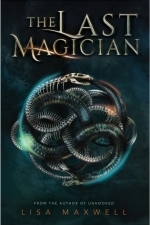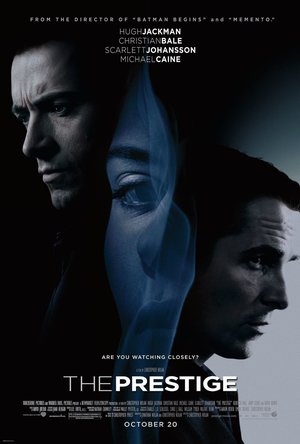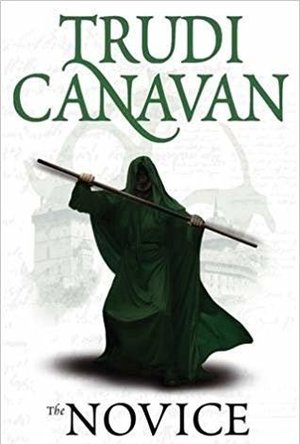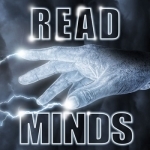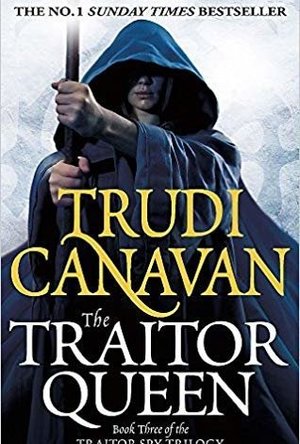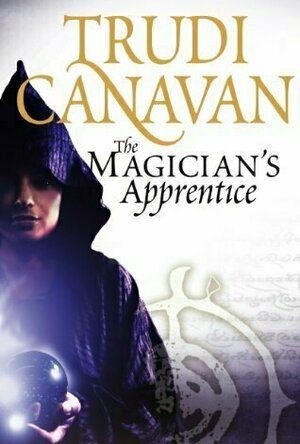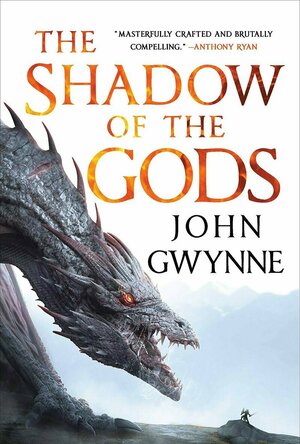Search
Haley Mathiot (9 KP) rated The Pyramid of Souls (Magickeepers, #2) in Books
Apr 27, 2018
Series Review:
I really enjoyed the Magickeeper series! It's written for ages 8-14, but even I got really into it and enjoyed it a lot.
The stories were both woven well, with plenty of mystery and suspense to keep you reading. Once I started to read, it was hard to put it down. I never knew what to expect and was always surprised. It was like walking through a fun-house: you never knew what was going to be around the corner.
My favorite characters had to be Nick and Isabella, followed closely by Isabella's pet tiger, Sascha. Sascha was just a really cool tiger. Vladimir, the hedgehog, was pretty cool, too. It was fun to watch Nick and Isabella together: they balanced each other well and would be fun people to be around. I wish they were real so we could hang out. Haley why would you want to hang out with thirteen-year-olds? Because they're magician thirteen-year-olds who can disappear and fly and look into crystal balls, and have more adventure in a day that I have in a month.
The writing was good and easy to read and easy to follow, but some of the structure was a little confusing at times. It didn't take away form the action and adventure, though.
I really liked the Russian culture incorporated into the stories. It wasn't overdone, but it was really fun to read the descriptions of the foods and the clothes and the decorations, and learn about some of the traditions. In the second book, The Pyramid of Souls, there was a lot of other cultures incorporated into it as well, because there were Magickeepers from Egypt and Nigeria and a Parisian clan, and Australians… so there were a lot of cool things that went on that we wouldn't normally think about—even in the world of magic.
I look forward to the next book in the Magickeeper series! The Eternal Hourglass came out in paperback on March 31, 2010 and The Pyramid of Souls was just published in hardback on May 1st, 2010.
Content/Recommendation: clean, and suitable for ages 8-16(-ish). I'm 18 and I enjoyed it, and parents would enjoy reading the books out loud to their kids as well!
I really enjoyed the Magickeeper series! It's written for ages 8-14, but even I got really into it and enjoyed it a lot.
The stories were both woven well, with plenty of mystery and suspense to keep you reading. Once I started to read, it was hard to put it down. I never knew what to expect and was always surprised. It was like walking through a fun-house: you never knew what was going to be around the corner.
My favorite characters had to be Nick and Isabella, followed closely by Isabella's pet tiger, Sascha. Sascha was just a really cool tiger. Vladimir, the hedgehog, was pretty cool, too. It was fun to watch Nick and Isabella together: they balanced each other well and would be fun people to be around. I wish they were real so we could hang out. Haley why would you want to hang out with thirteen-year-olds? Because they're magician thirteen-year-olds who can disappear and fly and look into crystal balls, and have more adventure in a day that I have in a month.
The writing was good and easy to read and easy to follow, but some of the structure was a little confusing at times. It didn't take away form the action and adventure, though.
I really liked the Russian culture incorporated into the stories. It wasn't overdone, but it was really fun to read the descriptions of the foods and the clothes and the decorations, and learn about some of the traditions. In the second book, The Pyramid of Souls, there was a lot of other cultures incorporated into it as well, because there were Magickeepers from Egypt and Nigeria and a Parisian clan, and Australians… so there were a lot of cool things that went on that we wouldn't normally think about—even in the world of magic.
I look forward to the next book in the Magickeeper series! The Eternal Hourglass came out in paperback on March 31, 2010 and The Pyramid of Souls was just published in hardback on May 1st, 2010.
Content/Recommendation: clean, and suitable for ages 8-16(-ish). I'm 18 and I enjoyed it, and parents would enjoy reading the books out loud to their kids as well!
Kyera (8 KP) rated The Last Magician in Books
Jan 31, 2018
This was a brilliantly woven time-traveling, magical heist book and I didn't even know how much I wanted it in my life. The book is written from multiple perspectives, which took a couple of chapters to get used to (as I was listening to the audiobook and there weren't multiple narrators) but soon I recognized each character's unique voice and fell into the story. In general, the plot was not fast paced but Maxwell vibrantly painted the world our main character finds herself in.
Esta is an orphan and a thief who is tasked with going back in time to alter the events of a heist that occurred in 1904 New York City. New York City is a world of mages, people will unique affinities, like Esta's ability to manipulate the fabric of time. Esta herself is a likable main character and the lens through which we learn about the other characters. As she is also from our time period, she must occasionally readjust her worldview, actions or outward opinions to match those of the time. Despite the fact that she is a thief, we get to see her smart and sarcastic side as well as her stubborn determination.
Despite the large cast of characters, I felt that they were generally well-developed and had the time to grow. I really enjoyed getting to know Dolph as the multi-faceted head of a gang and Harte the magician that Esta has been warned against. The crew reminded me of the Dregs from Six of Crows at times, although they didn't have quite the same chemistry. It was still enjoyable to watch them, although I hope that the others in the gang are developed further because I would like to see more of their personalities or backstories.
There wasn't as much focus on the magic dynamics as I expected there to be, but I was so enamored by the characters and world-building that it wasn't noticeable. Maxwell did a fabulous job reconstructing New York City at the start of the twentieth century and I fell in love. Overall, I felt the book satisfyingly wrapped up most of the threads from the book and introduced a few more that can be explored in book two. I really enjoyed the read and cannot wait to see how it ends in the second book.
Esta is an orphan and a thief who is tasked with going back in time to alter the events of a heist that occurred in 1904 New York City. New York City is a world of mages, people will unique affinities, like Esta's ability to manipulate the fabric of time. Esta herself is a likable main character and the lens through which we learn about the other characters. As she is also from our time period, she must occasionally readjust her worldview, actions or outward opinions to match those of the time. Despite the fact that she is a thief, we get to see her smart and sarcastic side as well as her stubborn determination.
Despite the large cast of characters, I felt that they were generally well-developed and had the time to grow. I really enjoyed getting to know Dolph as the multi-faceted head of a gang and Harte the magician that Esta has been warned against. The crew reminded me of the Dregs from Six of Crows at times, although they didn't have quite the same chemistry. It was still enjoyable to watch them, although I hope that the others in the gang are developed further because I would like to see more of their personalities or backstories.
There wasn't as much focus on the magic dynamics as I expected there to be, but I was so enamored by the characters and world-building that it wasn't noticeable. Maxwell did a fabulous job reconstructing New York City at the start of the twentieth century and I fell in love. Overall, I felt the book satisfyingly wrapped up most of the threads from the book and introduced a few more that can be explored in book two. I really enjoyed the read and cannot wait to see how it ends in the second book.
BankofMarquis (1832 KP) rated The Prestige (2006) in Movies
Mar 22, 2018
Underrated and underseen gem
Along with INSOMNIA, the 2006 film that Nolan directed, THE PRESTIGE is probably one of his least known and least viewed films and that is too bad for it is a wonderful motion picture that proves he is a strong director with a strong vision.
Dubbed "The Warring Magicians" film, THE PRESTIGE stars Christian Bale and Hugh Jackman as two 19th Century Magicians who are...well...at war with each other. Of course, they started out as partners, but soon became enemies, each trying to out do each other and to discover the other magician's secrets.
Cleverly written by Nolan and his frequent collaborator, his brother Jonathan Nolan - and based on the novel by Christopher Priest, THE PRESTIGE will keep you guessing throughout, trying to figure out "how they did it" and are constantly being surprised by double turns, back stabbing and second guessing.
Bale, by this time in his career, has established himself as a powerful actor - and he shines here. Joining Bale is Nolan regular Michael Caine as the mentor of the two magicians, a young-ish Scarlett Johannsen as a a woman who falls in love with both of them (of course) and Rebecca Hall and Piper Perabo as Bale's and Jackman's wives, respectively. But...the surprise to me in this film when I first saw it - and again when I recently re-viewed it - is the performance of Hugh Jackman. This film shows that Jackman is more than just Wolverine - that dude can act. As a magician, he is showing glimpses of being "THE GREATEST SHOWMAN" (but that is another movie for another day) and more than holds his own against a fierce Bale. Finally...special notice needs to be made to the actor who portrays inventor Nikola Tesla - perfectly cast in this role is Ziggy Stardust himself, David Bowie. It's a shame that Bowie did not act in more films for he captures the screen in the brief appearances he makes in this film.
As for Nolan - he is now coming into his own as a Director. The action is fast paced, the twists and turns are "honestly" played, the composition of the pictures on the screen are interesting and beautiful to look at and I walked away satisfied.
If you haven't seen THE PRESTIGE (or if you haven't seen it in awhile) - check this one out. You'll be glad you did.
Letter Grade: A (and...that's a surprise to me, I figured it would be a B+/A- film)
9 (out of 10) stars and you can take that to the Bank (ofMarquis)
Dubbed "The Warring Magicians" film, THE PRESTIGE stars Christian Bale and Hugh Jackman as two 19th Century Magicians who are...well...at war with each other. Of course, they started out as partners, but soon became enemies, each trying to out do each other and to discover the other magician's secrets.
Cleverly written by Nolan and his frequent collaborator, his brother Jonathan Nolan - and based on the novel by Christopher Priest, THE PRESTIGE will keep you guessing throughout, trying to figure out "how they did it" and are constantly being surprised by double turns, back stabbing and second guessing.
Bale, by this time in his career, has established himself as a powerful actor - and he shines here. Joining Bale is Nolan regular Michael Caine as the mentor of the two magicians, a young-ish Scarlett Johannsen as a a woman who falls in love with both of them (of course) and Rebecca Hall and Piper Perabo as Bale's and Jackman's wives, respectively. But...the surprise to me in this film when I first saw it - and again when I recently re-viewed it - is the performance of Hugh Jackman. This film shows that Jackman is more than just Wolverine - that dude can act. As a magician, he is showing glimpses of being "THE GREATEST SHOWMAN" (but that is another movie for another day) and more than holds his own against a fierce Bale. Finally...special notice needs to be made to the actor who portrays inventor Nikola Tesla - perfectly cast in this role is Ziggy Stardust himself, David Bowie. It's a shame that Bowie did not act in more films for he captures the screen in the brief appearances he makes in this film.
As for Nolan - he is now coming into his own as a Director. The action is fast paced, the twists and turns are "honestly" played, the composition of the pictures on the screen are interesting and beautiful to look at and I walked away satisfied.
If you haven't seen THE PRESTIGE (or if you haven't seen it in awhile) - check this one out. You'll be glad you did.
Letter Grade: A (and...that's a surprise to me, I figured it would be a B+/A- film)
9 (out of 10) stars and you can take that to the Bank (ofMarquis)
Phil Leader (619 KP) rated The Novice (Black Magician Trilogy, #2) in Books
Nov 21, 2019
The Novice is the second book in The Black Magician trilogy and continues the story of Sonea, the slum girl who discovers she has magical powers.
A few months after the first book, Sonea is offically inducted as a novice into the Magician's Guild in Imardin. She is immediately looked down on by her fellow novices and indeed other magicians because of her poor upbringing (magicians always being taken from the families of the rich upper class). One novice in particular will go to any lengths to humiliate her. Meanwhile Sonea is hiding a secret. The High Lord of the Guild is practicing black magic, strictly forbidden. Dannyl is sent on a secret mission by Lorlen to try to discover how the High Lord won these powers and if there is anything that can be done to stop him.
I found this book to be far more satisfying than the first book, The Magician's Guild. I think this is due to two factors. Firstly Canavan's writing is far more confident and assured (not surprising for a second novel). Also the story arc is a lot less predictable and allows for more twists and turns since the end is not inevitable (in the first novel it is clear that Sonea will eventually be joining the guild; it is only the sub-plots that provide suprises).
As a consequence this is an easier read than the first book with plenty of good stories, either Sonea's (mis)adventures in the Guild or Dannyl's voyage of discovery on his travels. The end resolves one of the major plot points, leaving the rest for the third book, The High Lord to investigate.
Canavan touches on various topics during the book, particularly bullying by peers and also some nice observations on repression of homosexuality in the intolerant Imardin society.
It is also welcoming to see more of the land; the first book was bound to the city itself but here through Dannyl we get to see the neighbouring lands and discover some of their peoples and customs, together with a fair amount of hazardous travelling.
The magic system is also key; normally magicians throw around a bewildering array of spells with limitless powers. Clearly this isn't an option in these books and each spell and power Sonea learns is neatly and logically explained and consistant. It really makes a change that the magic spells are treated mechanically rather than as, well, 'magic'.
Definitely a recommended read
A few months after the first book, Sonea is offically inducted as a novice into the Magician's Guild in Imardin. She is immediately looked down on by her fellow novices and indeed other magicians because of her poor upbringing (magicians always being taken from the families of the rich upper class). One novice in particular will go to any lengths to humiliate her. Meanwhile Sonea is hiding a secret. The High Lord of the Guild is practicing black magic, strictly forbidden. Dannyl is sent on a secret mission by Lorlen to try to discover how the High Lord won these powers and if there is anything that can be done to stop him.
I found this book to be far more satisfying than the first book, The Magician's Guild. I think this is due to two factors. Firstly Canavan's writing is far more confident and assured (not surprising for a second novel). Also the story arc is a lot less predictable and allows for more twists and turns since the end is not inevitable (in the first novel it is clear that Sonea will eventually be joining the guild; it is only the sub-plots that provide suprises).
As a consequence this is an easier read than the first book with plenty of good stories, either Sonea's (mis)adventures in the Guild or Dannyl's voyage of discovery on his travels. The end resolves one of the major plot points, leaving the rest for the third book, The High Lord to investigate.
Canavan touches on various topics during the book, particularly bullying by peers and also some nice observations on repression of homosexuality in the intolerant Imardin society.
It is also welcoming to see more of the land; the first book was bound to the city itself but here through Dannyl we get to see the neighbouring lands and discover some of their peoples and customs, together with a fair amount of hazardous travelling.
The magic system is also key; normally magicians throw around a bewildering array of spells with limitless powers. Clearly this isn't an option in these books and each spell and power Sonea learns is neatly and logically explained and consistant. It really makes a change that the magic spells are treated mechanically rather than as, well, 'magic'.
Definitely a recommended read
Hazel (1853 KP) rated A City Dreaming in Books
Dec 14, 2018
My rating: 2.5
<i>I received this book for free through Goodreads First Reads.</i>
“The city never sleeps, but it’s always dreaming.” And, by dreaming, Daniel Polansky clearly means nightmares. <i>A City Dreaming</i> is, for the lack of a better term, an urban fantasy novel. Embracing elements of dystopia and steampunk universes, it is difficult to determine the time period in which it is set. What can be established is that, wherever you are in the world, you are never far away from a monster.
<i>A City Dreaming</i> revolves around a semi-anonymous character known as M. M appears to be some form of magician who wishes he could spend his days listlessly staring into the bottom of his beer glass. Yet with misbehaving creatures and warring goddess living in the city of New York, peace is a rare phenomenon in M’s life. From demons to murders and mind-boggling situations, there is never a dull moment.
Each chapter of <i>A City Dreaming</i> is, in some way, an individual story. Apart from the occasional recurring character, no scenario is ever continued after the chapter concludes. This is initially a cause for confusion. With no clear direction or purpose, it is hard to remain engaged with the author’s imagination.
Readers familiar with contemporary fantasy writers, such as Neil Gaiman, may understand Polansky’s vision – think <i>Neverwhere</i> and <i>American Gods</i> combined, but weirder. M spends the majority of his time either inebriated or on drugs, and, to be frank, it would not be surprising to learn the author was on drugs at the time of writing. Imagine Neil Gaiman on drugs; that is how bizarre this book is.
Despite his penchant for recreational drugs, M is an intelligent character that can humorously talk himself out of impossible situations. However it is often a hopeless ordeal to fathom the process of his intoxicated mind. As a result, <i>A City Dreaming</i> loses its thrill and excitement.
As this is the first Daniel Polansky novel that I have read, I do not know whether this is his usual style of writing or whether it was an attempt at something new. What I did observe was the intelligence hidden behind the excess of expletives and lewd content. Polansky writes with certain aptitude, almost as if he has swallowed a thesaurus.
Fans of Neil Gaiman and Brandon Sanderson may enjoy <i>A City Dreaming</i> more than new readers, since they will already be familiar with the style of bemusing narration. <i>A City Dreaming</i> does not live up to the definition of a novel, however as short, connecting stories it provides the intended entertainment. Almost certainly, this book will be received with mixed reviews; nonetheless it will undoubtedly eventually find its fan base.
<i>I received this book for free through Goodreads First Reads.</i>
“The city never sleeps, but it’s always dreaming.” And, by dreaming, Daniel Polansky clearly means nightmares. <i>A City Dreaming</i> is, for the lack of a better term, an urban fantasy novel. Embracing elements of dystopia and steampunk universes, it is difficult to determine the time period in which it is set. What can be established is that, wherever you are in the world, you are never far away from a monster.
<i>A City Dreaming</i> revolves around a semi-anonymous character known as M. M appears to be some form of magician who wishes he could spend his days listlessly staring into the bottom of his beer glass. Yet with misbehaving creatures and warring goddess living in the city of New York, peace is a rare phenomenon in M’s life. From demons to murders and mind-boggling situations, there is never a dull moment.
Each chapter of <i>A City Dreaming</i> is, in some way, an individual story. Apart from the occasional recurring character, no scenario is ever continued after the chapter concludes. This is initially a cause for confusion. With no clear direction or purpose, it is hard to remain engaged with the author’s imagination.
Readers familiar with contemporary fantasy writers, such as Neil Gaiman, may understand Polansky’s vision – think <i>Neverwhere</i> and <i>American Gods</i> combined, but weirder. M spends the majority of his time either inebriated or on drugs, and, to be frank, it would not be surprising to learn the author was on drugs at the time of writing. Imagine Neil Gaiman on drugs; that is how bizarre this book is.
Despite his penchant for recreational drugs, M is an intelligent character that can humorously talk himself out of impossible situations. However it is often a hopeless ordeal to fathom the process of his intoxicated mind. As a result, <i>A City Dreaming</i> loses its thrill and excitement.
As this is the first Daniel Polansky novel that I have read, I do not know whether this is his usual style of writing or whether it was an attempt at something new. What I did observe was the intelligence hidden behind the excess of expletives and lewd content. Polansky writes with certain aptitude, almost as if he has swallowed a thesaurus.
Fans of Neil Gaiman and Brandon Sanderson may enjoy <i>A City Dreaming</i> more than new readers, since they will already be familiar with the style of bemusing narration. <i>A City Dreaming</i> does not live up to the definition of a novel, however as short, connecting stories it provides the intended entertainment. Almost certainly, this book will be received with mixed reviews; nonetheless it will undoubtedly eventually find its fan base.
Marylegs (44 KP) rated The Traitor Queen (Traitor Spy Trilogy, #3) in Books
Aug 14, 2019
The Traitor Queen gripped me straight away, I did have a couple of pages where I was slightly confused but that was more to do with it having been a very long time between me reading this book and the previous books. However it didnt take long for it all to come back, and for me to remember what was happening, who was who and what I thought was going to happen. Throughout the book I felt so connected to all the characters, even those I hadnt previously liked.
As this is the last part of a sequel trilogy there were a number of characters to follow. Obviously Black Magician Sonea, who was the main character in the previous trilogy still has an important role and is travelling to Sachaka for diplomatic purposes, accompanied by Lord Regin. Lord Regin and Soneas relationship had developed greatly over the six books and I have to say I liked where his story lead to, from being a horrible, manipulative, spoilt character to a dignified, understanding and very likeable character. There is also Lord Lorkin, Sonea son, who has returned to the Sachakan capital after living a number of months with the Traitors, the outlaw band of black magicians that live in the mountains of Sachaka. He has had to leave Tyvara, the woman he has fallen in love with and doesnt know if he will see her again. He knows at some point he will have to choose between her and the traitors and his home in the allied lands. Also back home is Lilia, Anyi, Cery and Gol who are undertaking in a completed different story line that is equally dramatic and important to the development of allied lands. All the characters storylines climax in devastating amazing ways.
As this was the end of long series if you include both trilogies I have been able to see full character developments, share their losses, see how that has changed them. This has been a brilliant series and one I have enjoyed immensely. I will say I think over all I preferred the first trilogy more, but only because I felt it was more raw and emotional. This trilogy, using the same character base, I found that I connected most with the characters I already knew and never truly warmed to new additions. However it was nice to be able to see these characters I knew grow up and change. Would highly recommend, if you enjoyed other YA books like Harry Potter, Hunger Games, Tales of the Otori etc; I would imagine you would love the original series and this one.
As this is the last part of a sequel trilogy there were a number of characters to follow. Obviously Black Magician Sonea, who was the main character in the previous trilogy still has an important role and is travelling to Sachaka for diplomatic purposes, accompanied by Lord Regin. Lord Regin and Soneas relationship had developed greatly over the six books and I have to say I liked where his story lead to, from being a horrible, manipulative, spoilt character to a dignified, understanding and very likeable character. There is also Lord Lorkin, Sonea son, who has returned to the Sachakan capital after living a number of months with the Traitors, the outlaw band of black magicians that live in the mountains of Sachaka. He has had to leave Tyvara, the woman he has fallen in love with and doesnt know if he will see her again. He knows at some point he will have to choose between her and the traitors and his home in the allied lands. Also back home is Lilia, Anyi, Cery and Gol who are undertaking in a completed different story line that is equally dramatic and important to the development of allied lands. All the characters storylines climax in devastating amazing ways.
As this was the end of long series if you include both trilogies I have been able to see full character developments, share their losses, see how that has changed them. This has been a brilliant series and one I have enjoyed immensely. I will say I think over all I preferred the first trilogy more, but only because I felt it was more raw and emotional. This trilogy, using the same character base, I found that I connected most with the characters I already knew and never truly warmed to new additions. However it was nice to be able to see these characters I knew grow up and change. Would highly recommend, if you enjoyed other YA books like Harry Potter, Hunger Games, Tales of the Otori etc; I would imagine you would love the original series and this one.
Tom Turner (388 KP) rated The Magician's Apprentice (Black Magician, #0.5) in Books
Apr 30, 2021
I would like to say I loved this book, but there is part of me resisting that solely because I didn't feel satisfied by its ending. It felt to me that it wasn't tied up properly. It kind of felt there should have been a couple more pages. I also thought that seeing as Tessia is the title and main character of the book that it was a shame the final scene (though mentioning her) doesn't feature her.
I have picked up copies of Trudi Canavan's books in shops a number of times over the years, but I never bought one because I didn't want to invest in a trilogy if I wasn't completely "with it". So when I realised that this book was a stand-alone novel, but was set in the world (albeit a few hundred years before!) some of her other books I jumped at the chance of reading it.
From my first paragraph you'll probably think I ended up disappointed, but you'd be wrong. Until the very end I really really enjoyed this. The characters were well formed and it was lovely to have a story of war where you see both sides of said war, and the juxtaposition of Stara and Tessia's stories was intriguing but perhaps not played to its full potential. The two different cultures were very well constructed, and by having the Stara strand meant you never fully demonised the Sachakans, making them a more fully constructed culture - one that is eerily familiar.
My mind keeps wondering while I felt disappointed, and I guess I felt I needed more, and maybe this is because Canavan is more used to writing trilogies, maybe this is what is needed, I'd love to read a story of Tessia and Jayan as they built the Guild with the others. I feel there could be a whole book in that alone. It would have been nice to have at least got a glimpse of it. Given that it is a central part of the Black Magician trilogy I feel that could have been nice. Maybe all these niggles I'm feeling will be sorted when I read said trilogy, and I certainly will do, and maybe I'd have felt more satisfied if I'd read this in publication order. Who knows I may come back one day and re- review this book after re-reading it following reading the other six book set in this world.
I'm glad to have read this book, and I am excited to read more Trudi Canavan. I guess me saying that when I don't have the butterflies in the stomach I get at the end of reading a book is something in itself.
I have picked up copies of Trudi Canavan's books in shops a number of times over the years, but I never bought one because I didn't want to invest in a trilogy if I wasn't completely "with it". So when I realised that this book was a stand-alone novel, but was set in the world (albeit a few hundred years before!) some of her other books I jumped at the chance of reading it.
From my first paragraph you'll probably think I ended up disappointed, but you'd be wrong. Until the very end I really really enjoyed this. The characters were well formed and it was lovely to have a story of war where you see both sides of said war, and the juxtaposition of Stara and Tessia's stories was intriguing but perhaps not played to its full potential. The two different cultures were very well constructed, and by having the Stara strand meant you never fully demonised the Sachakans, making them a more fully constructed culture - one that is eerily familiar.
My mind keeps wondering while I felt disappointed, and I guess I felt I needed more, and maybe this is because Canavan is more used to writing trilogies, maybe this is what is needed, I'd love to read a story of Tessia and Jayan as they built the Guild with the others. I feel there could be a whole book in that alone. It would have been nice to have at least got a glimpse of it. Given that it is a central part of the Black Magician trilogy I feel that could have been nice. Maybe all these niggles I'm feeling will be sorted when I read said trilogy, and I certainly will do, and maybe I'd have felt more satisfied if I'd read this in publication order. Who knows I may come back one day and re- review this book after re-reading it following reading the other six book set in this world.
I'm glad to have read this book, and I am excited to read more Trudi Canavan. I guess me saying that when I don't have the butterflies in the stomach I get at the end of reading a book is something in itself.
Ross (3284 KP) rated The Shadow of the Gods in Books
Jun 2, 2021
Superb nordic fantasy
Shadow of the Gods is the first book in a new series from Gwynne, and his first away from the world of the Faithful and the Fallen. It takes place in a viking-esque part of a world whose gods have recently died, and the world is gradually emerging from tribalism and remote settlements into wider government, at great pain to its people.
There are rumours of rare people who are descendants of the gods and under stress (or on command once they are trained) can enhance their physical abilities - strength, speed, fury etc.
We meet three characters:
- Orka, a woman with a mysterious past who just wants a quiet simple life with her husband and son, away from the ambitions of their countrymen
- Elvar, a young bountyhunter woman who, along with her fellow longboatmen are initially hunting one of the alleged gods' descendants
- Varg, a young man who has recently escaped slavery in unpleasant circumstances and wants to find what happened to his sister, seeking a magician to tell him her last moments
The three PoVs give us an excellent view of this world, and we see the beginning conflict from numerous standpoints. Varg, far from being a vehicle to deliver worldbuilding, is an excellently formed character who is trained in combat with spear and shield (and of course, Gwynne's trademark shield wall obsession).
The different PoVs also allow us to see one overall story developing, but building up from numerous subplots and quests.
The action scenes are excellent and plenty, as usual, both single combat trials and larger battle scenes against people and monsters. Where the Faithful and the Fallen had the "sword flicks sand in the eye" trope, which was overused, here we have the axe being used to hook someone's shield and yeet them out of the shield wall. This is less overused, and I believe a genuine effective battle tactic, but one that the reader notices regularly.
The mysteries of the world and the characters inhabiting it are revealed gradually enough to keep even this impatient reader satisfied. I admit to overthinking it and trying to guess how the stories might overlap/weave together and got it all completely wrong. There were times when I did mix up the quests of Varg and his boat crew, and Elvar and her boat crew, as they are very similar, but this is natural when such a large cast of characters is introduced.
An excellent thrilling adventure and one that effortlessly got me out of something of a reading slump (everything has felt like a chore for so long, but this was a delight every time I sat down to read).
I received a free copy from the publishers and netgalley in exchange for an honest review.
There are rumours of rare people who are descendants of the gods and under stress (or on command once they are trained) can enhance their physical abilities - strength, speed, fury etc.
We meet three characters:
- Orka, a woman with a mysterious past who just wants a quiet simple life with her husband and son, away from the ambitions of their countrymen
- Elvar, a young bountyhunter woman who, along with her fellow longboatmen are initially hunting one of the alleged gods' descendants
- Varg, a young man who has recently escaped slavery in unpleasant circumstances and wants to find what happened to his sister, seeking a magician to tell him her last moments
The three PoVs give us an excellent view of this world, and we see the beginning conflict from numerous standpoints. Varg, far from being a vehicle to deliver worldbuilding, is an excellently formed character who is trained in combat with spear and shield (and of course, Gwynne's trademark shield wall obsession).
The different PoVs also allow us to see one overall story developing, but building up from numerous subplots and quests.
The action scenes are excellent and plenty, as usual, both single combat trials and larger battle scenes against people and monsters. Where the Faithful and the Fallen had the "sword flicks sand in the eye" trope, which was overused, here we have the axe being used to hook someone's shield and yeet them out of the shield wall. This is less overused, and I believe a genuine effective battle tactic, but one that the reader notices regularly.
The mysteries of the world and the characters inhabiting it are revealed gradually enough to keep even this impatient reader satisfied. I admit to overthinking it and trying to guess how the stories might overlap/weave together and got it all completely wrong. There were times when I did mix up the quests of Varg and his boat crew, and Elvar and her boat crew, as they are very similar, but this is natural when such a large cast of characters is introduced.
An excellent thrilling adventure and one that effortlessly got me out of something of a reading slump (everything has felt like a chore for so long, but this was a delight every time I sat down to read).
I received a free copy from the publishers and netgalley in exchange for an honest review.

Whoowasit? - Children's game of the year 2008
Games and Entertainment
App
Whoowasit? has been nominated in the categories „Bestes Kinderspiel“ (best game for kids) and...

